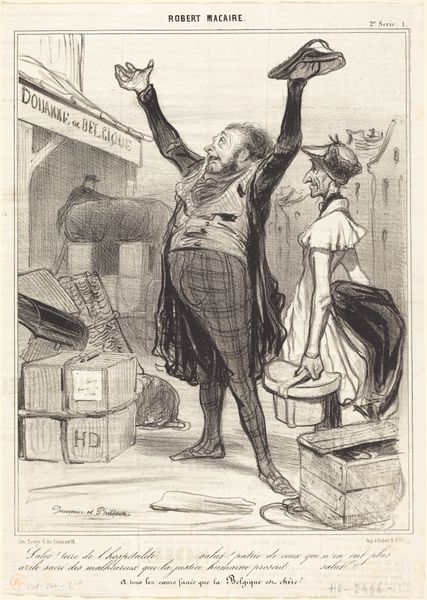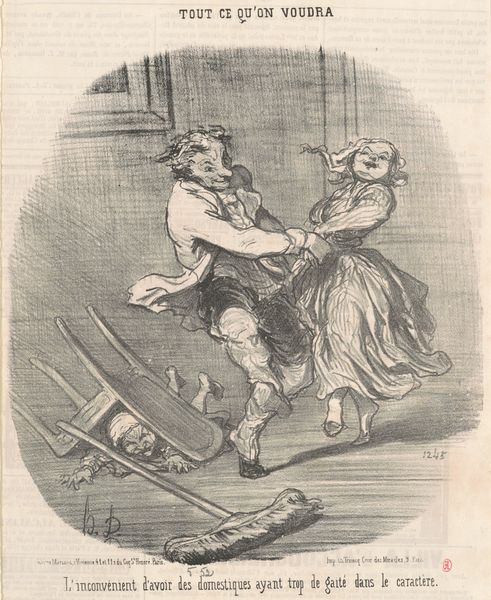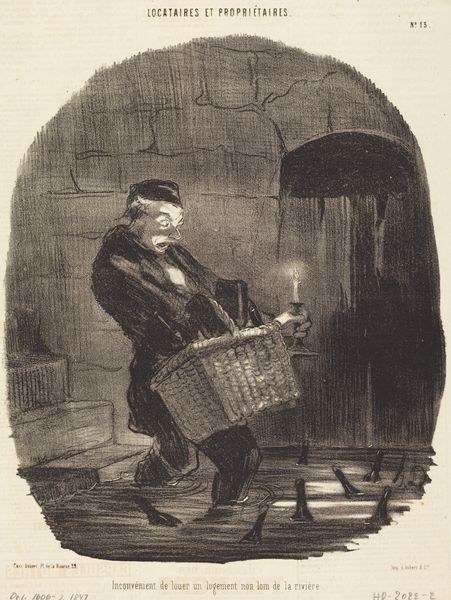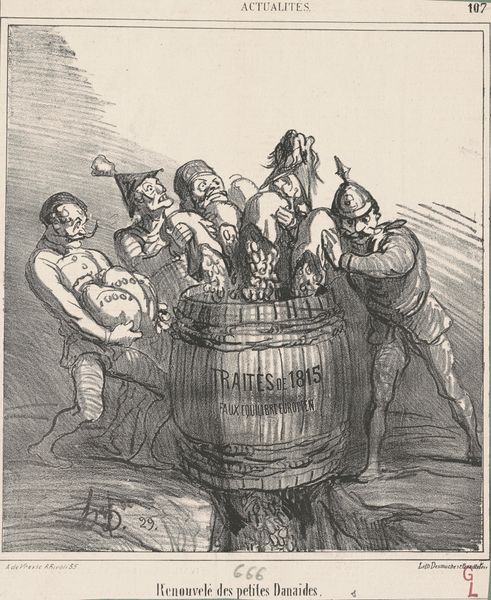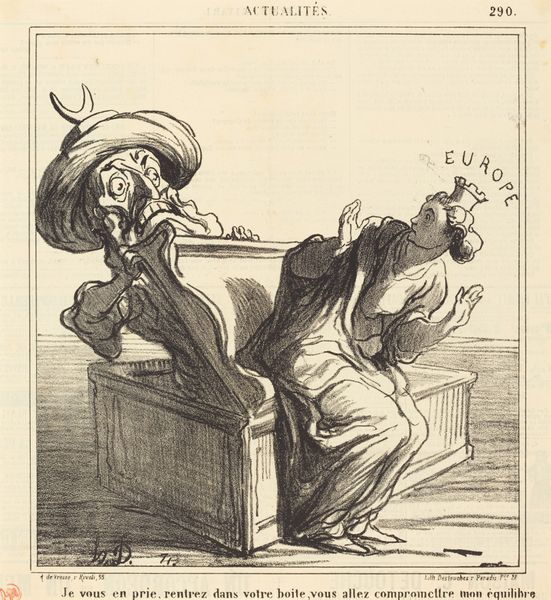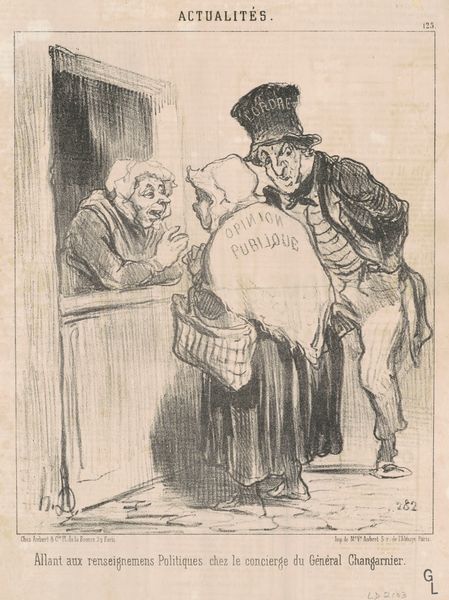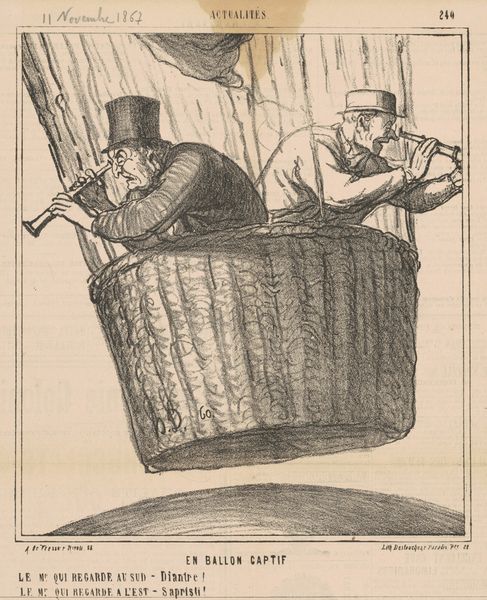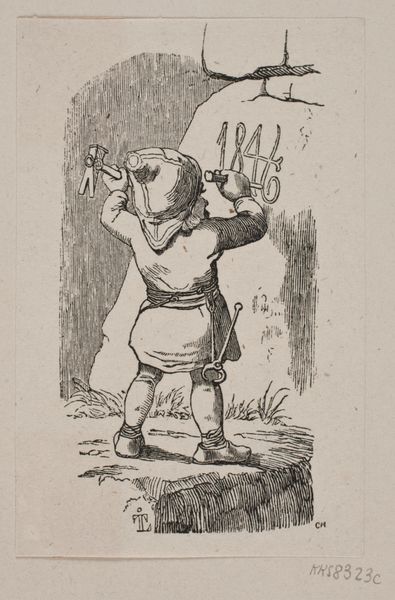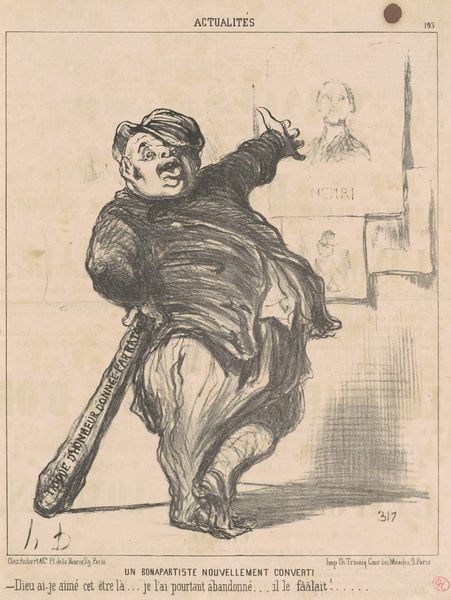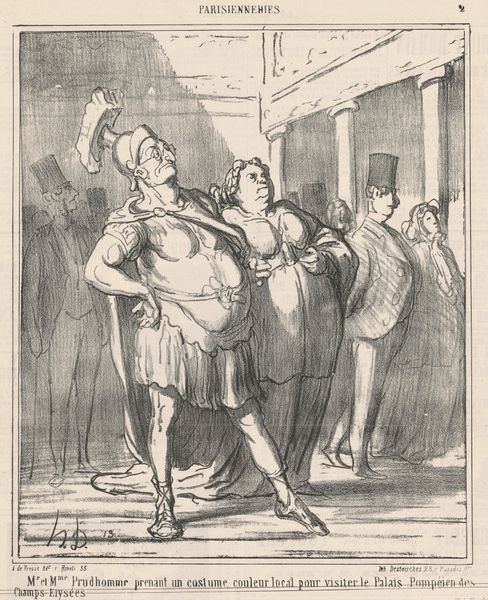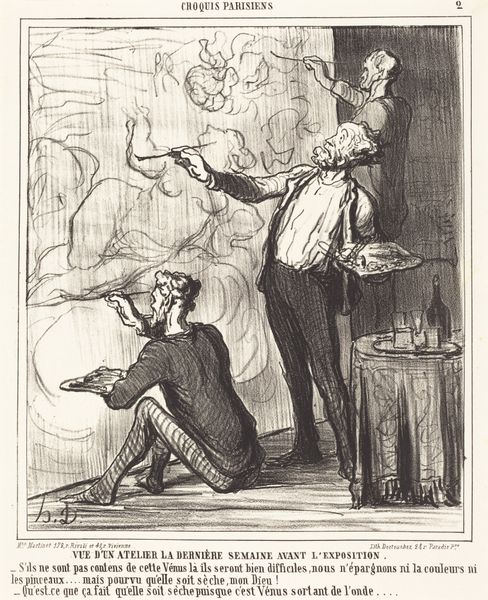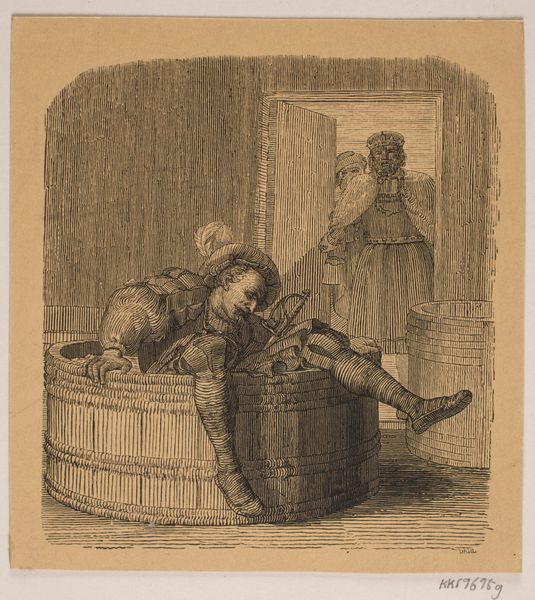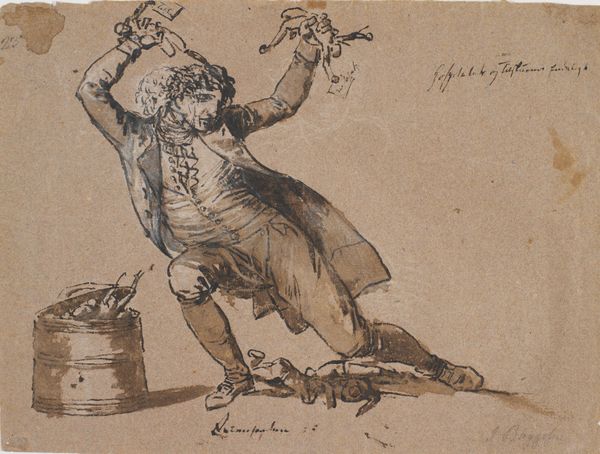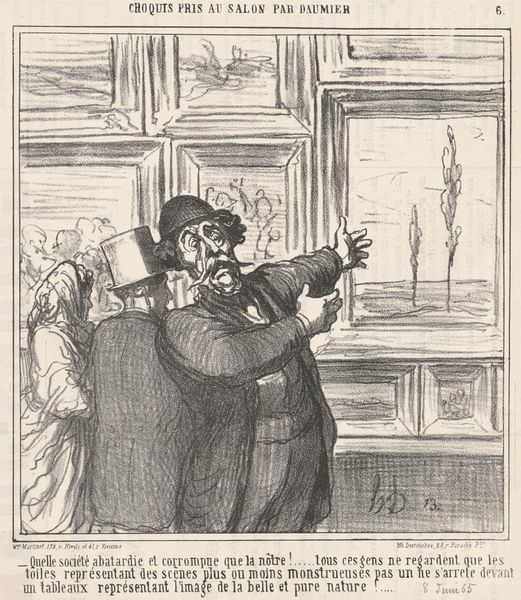
graphic-art, mixed-media, lithograph, print, impasto
#
graphic-art
#
mixed-media
#
lithograph
# print
#
caricature
#
impasto
#
genre-painting
#
realism
Copyright: National Gallery of Art: CC0 1.0
Editor: So, this lithograph, "Mimi Véron croit avoir... trouvé le..." by Honoré Daumier, is from around the 19th century. It looks like a caricature. Someone is violently pounding a figure in a pot. What's striking to me is the contrast between the crude action and the medium. It’s a print, something made to be reproduced and widely disseminated. How do you interpret that? Curator: I’m immediately drawn to the social context. This isn't just an image; it's a commodity, reproduced en masse. Lithography democratized image-making. Think about what's being depicted – violence and potential social commentary, brought to the public sphere through readily available prints. Consider also that impasto, often associated with painting, is noted here, but its mere suggestion via lithography adds layers. How does that detail inform its context? Editor: Interesting. It cheapens, almost makes light of, the traditional fine art of impasto, or maybe imbues it with a different social role? How does realism as an artistic choice, given the mode of production here, play into your analysis? Curator: Realism, in this instance, isn’t just about depicting things accurately. It becomes about representing the *material conditions* of life, including social struggles, to a broader audience via a mass-produced medium. It's Daumier using the tools of industry—the printing press—to critique the very society that produced them, in his very distinct process, and also questioning the concept of fine arts, like, the 'original'. Are the barrel, pot, mallet more than simple instruments? Editor: Now that I see those objects from a Materialist perspective, they definitely reinforce the notion of mundane brutality. It takes something horrific and industrializes it through both subject and media! I learned that to truly appreciate a work like this, you need to see how its production impacts its meaning. Curator: Exactly. The mode of creation IS the message, embedded in a socio-economic world. Material conditions create, and are then impacted by, culture.
Comments
No comments
Be the first to comment and join the conversation on the ultimate creative platform.
